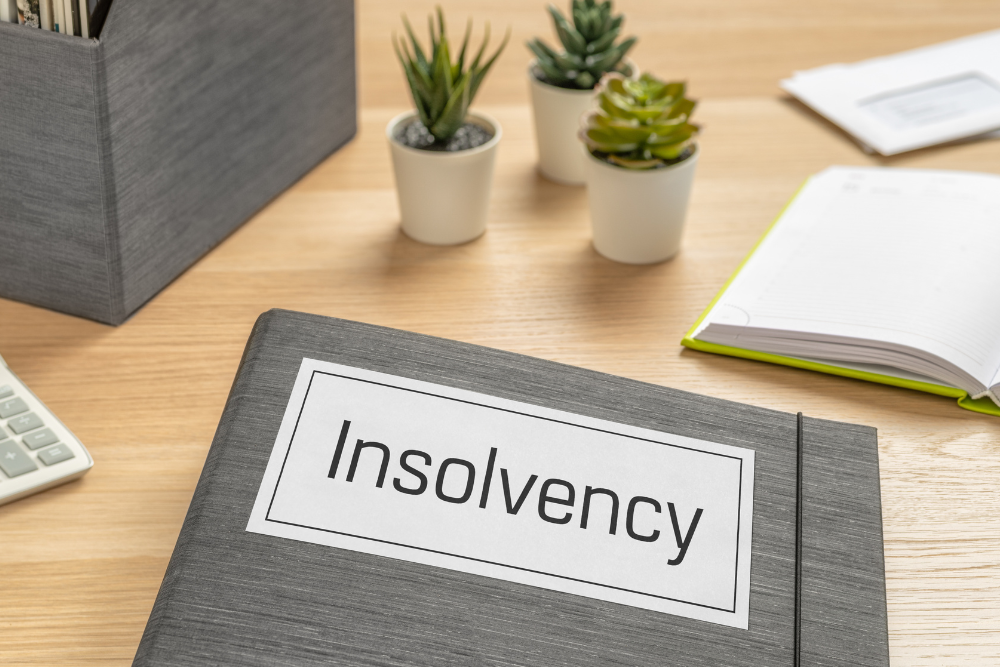The 7-Second Trick For Insolvency Practitioner
The 7-Second Trick For Insolvency Practitioner
Blog Article
More About Insolvency Practitioner
Table of ContentsInsolvency Practitioner - TruthsExamine This Report about Insolvency PractitionerInsolvency Practitioner - The Facts8 Easy Facts About Insolvency Practitioner ExplainedWhat Does Insolvency Practitioner Mean?
Whether or not you require to use an insolvency practitioner (IP) to liquidate your firm relies on numerous variables. While involving an insolvency practitioner for all kinds of liquidation is not a lawful requirement, doing so can often simplify the procedure and ensure compliance with lawful demands. Liquidating a business is a crucial choice that comes with significant repercussions.
It is a procedure made use of when a firm does not have any type of creditors, or every one of their lenders can be paid off completely with statutory passion. Recognizing the different types of bankruptcy procedures can aid you figure out the most effective strategy for your business's liquidation or various other formal bankruptcy procedures itself.
This is mandatory in order to stick to lawful needs - Insolvency Practitioner. This is since IPs have the essential certifications and experience to guarantee that the liquidation procedure is performed in accordance with all appropriate legislations and regulations. By engaging a qualified bankruptcy specialist, you can have assurance recognizing that your company's liquidation process will be dealt with expertly and in compliance with the appropriate lawful requirements
Not known Factual Statements About Insolvency Practitioner
The insolvency professional is assigned as a liquidator and is in charge of taking care of the company and liquidator's financial obligations impressive liabilities and properties. This procedure includes selling the firm's properties and distributing the proceeds to financial institutions. Upon conclusion of the process, the company is removed from the register at Companies Residence.
Stopping working to do so can lead to personal responsibility for the business or director for the creditor's debts. Volunteer liquidation, which includes Creditors' Volunteer Liquidation (CVL) and Members' Voluntary Liquidation (MVL), is initiated by the firm's supervisors and shareholders when they can no much longer pay their financial obligations. In a CVL, the insolvency practitioner is assigned as the liquidator, in charge of handling firm financial debts and all business possessions.

The Best Strategy To Use For Insolvency Practitioner
By analyzing the expertise and experience of prospective bankruptcy practitioners, you can guarantee that you choose an expert who possesses the needed credentials to manage your business's liquidation procedure successfully. While insolvency practitioner-led liquidation is usually the most appropriate strategy for business dealing with insolvency, there are different approaches to take into consideration, such as striking off and partial liquidation.
It's vital to assess all readily available alternatives prior to choosing the following finest option or training course of activity for your company. Striking off business' registers is a more simple and cost-efficient means to shut inactive or small business without any debts or assets. To strike off a business, its name is eliminated from the Business House register by submitting form DS01.
Before choosing striking off, it's crucial to consider the benefits and disadvantages of this technique and think about whether it's the right option for your company. Partial liquidation is another option to insolvency practitioner-led liquidation, in which a firm liquidates certain properties and responsibilities while proceeding to operate with the staying assets and liabilities.
A Bankruptcy Practitioner will have the ability to encourage you of the best course of action to take and guarantee that everything runs efficiently. However, it is not possible to liquidate a business without a liquidator. Selecting an authorised bankruptcy professional is required for the process of voluntary liquidation to start.
The Basic Principles Of Insolvency Practitioner
It is feasible to shut and liquidate your business without utilizing a liquidator, provided your business is solvent and you fulfill the eligibility requirements to liquify or liquidate it. If your business is bankrupt, you might be required to utilize a liquidator and start official bankruptcy treatments. Here are a few other useful posts pertaining to firm liquidation in hop over to here the UK:.
Being in a setting where you're not able to pay your business's financial institutions is incredibly difficult. In an effort to stay clear of raising the level of debt, many business attempt to negotiate directly with their creditors and accept an informal plan. If the financial obligation is rather small and owed to one lender, and the lender is being cooperative, entering into an informal debt arrangement is possibly the most effective service, rather than looking the internet for 'an insolvency specialist near me'.
On the other hand, if there are numerous financial institutions and the degree of financial visit our website debt is big, lenders might not be so eager or participating. To avoid liquidation or insolvency, it is much better to employ an insolvency practitioner to formulate official propositions and negotiate with financial institutions in your place.
Getting The Insolvency Practitioner To Work
Whilst it is a means to take care of debt, there are substantial dangers included with this type of debt plan - Insolvency Practitioner. If a creditor agrees to become part of a casual arrangement (IA) wherein the debtor has actually consented to make routine, if lower, repayments to repay the financial obligation, it's important to stay with the arrangement

For that reason, the financial institution is within their civil liberties to back out of the arrangement and petition the courts for your company to be liquidated at any time. A formal setup that has been suggested by a bankruptcy practitioner on your part, and agreed by a financial institution, provides a much safer alternative.
Report this page